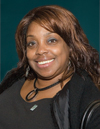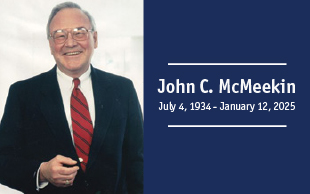
DIRECTIONS staff interviewed longtime PHMC board member Margie Austin, who has distinguished herself for her advocacy work on behalf of families of children with intellectual disabilities. Austin’s journey as an advocate started 18 years ago when her son Isaiah was born with Down syndrome. As a representative of these children and their families on the PHMC Board, Austin offers suggestions that promote inclusive communities. Her work has included providing insight for PHMC’s ChildLink program and gathering data on children with intellectual disabilities in other PHMC programs.
![]() Who inspires you to
Who inspires you to
give back to the community?
![]() My parents believed in volunteerism and inspired me at an early age. They always told me that if I want to make a difference, I must give of myself.
My parents believed in volunteerism and inspired me at an early age. They always told me that if I want to make a difference, I must give of myself.
![]() What qualities do you bring
What qualities do you bring
to the board of PHMC?
![]() I bring firsthand knowledge of the challenges and barriers people with disabilities struggle against to have an everyday life in their homes and community.
I bring firsthand knowledge of the challenges and barriers people with disabilities struggle against to have an everyday life in their homes and community.
![]() How did you come
How did you come
to join PHMC’s board?
![]() I was asked to serve on PHMC’s board through PHMC’s PersonLink program because of my work as an advocate for children with intellectual disabilities and the fact that I am the parent of a child with a disability.
I was asked to serve on PHMC’s board through PHMC’s PersonLink program because of my work as an advocate for children with intellectual disabilities and the fact that I am the parent of a child with a disability.
![]() What are some of your current
What are some of your current
initiatives with the PHMC board?
![]()
Two years ago, I helped to complete the Needs Assessment for Inclusive After School Programs for Children with Disabilities, an initiative that identifies the extent to which school-age children with intellectual disabilities experience inclusion or exclusion and the reasons this occurs. Results from the needs assessment, which includes data collected from PHMC programs that work with children with intellectual disabilities, focus groups and other resources, laid the groundwork for a strategic plan that outlines supports needed to increase the accessibility of community programs to children with intellectual disabilities. This project corresponded with my own initiative, Change Agents for Inclusive Programs, which offers resources to families of these children.
![]() What, in your opinion, are some of the biggest challenges facing nonprofits?
What, in your opinion, are some of the biggest challenges facing nonprofits?
![]() It can be a challenge to have strong leadership and it can also be difficult to find someone who has the ability to bring together people who want to better their communities. Also, finding funding streams and experienced grant writers is another challenge for a lot of nonprofits.
It can be a challenge to have strong leadership and it can also be difficult to find someone who has the ability to bring together people who want to better their communities. Also, finding funding streams and experienced grant writers is another challenge for a lot of nonprofits.
What Austin says every board member needs to know to successfully serve an organization:
No question is a dumb question; remember that you are representing the members and the community. While it is a board member’s duty to speak up, be respectful of others’ opinions.





